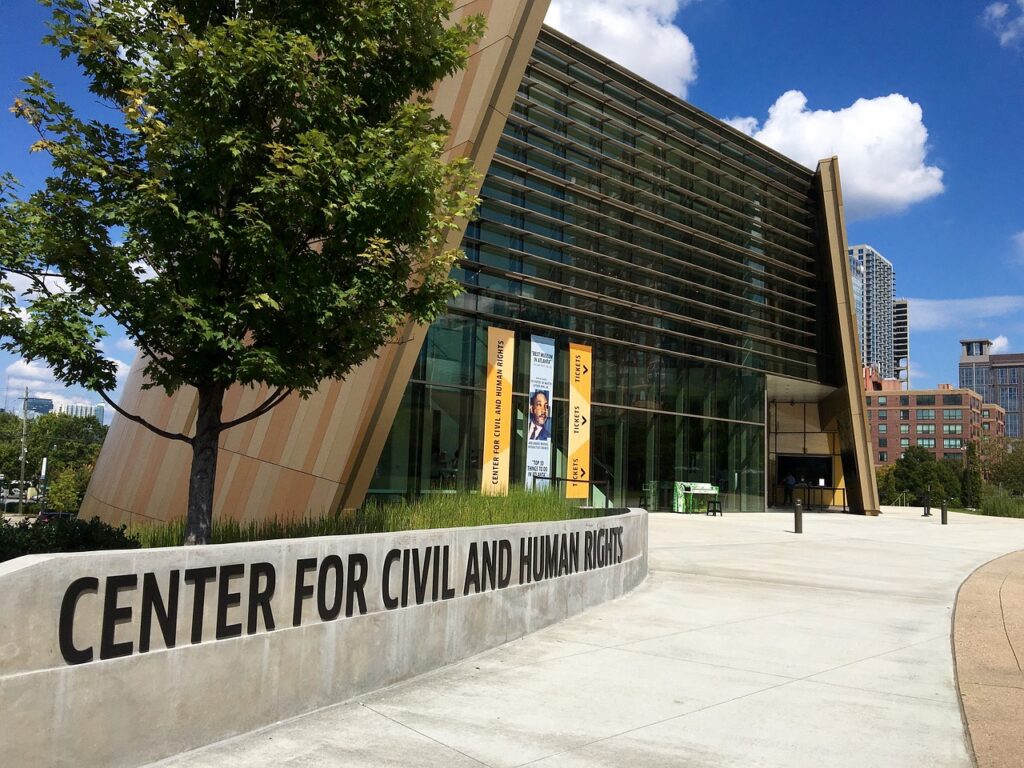If you have experienced a civil rights violation, the law allows you to seek compensation for the damages sustained. The average civil rights violation lawsuit settlement depends on the unique circumstances of your case and may vary widely based on the damages sustained and the strength of the available evidence. The compensation usually comprises compensatory damages (e.g., medical expenses and lost income), emotional distress damages, court fees, and attorney’s legal fees, and it may range from thousands to millions of dollars.
However, if you are financially hard-pressed, you do not have to wait for the lengthy settlement process to conclude. At High Rise Financial, we can advance you a loan on a flexible arrangement that you repay upon settlement, meaning that if you do not win the case, you pay nothing.
In This Article
- What Is a Civil Rights Violation?
- Types of Civil Rights Violations
- Average Civil Rights Violation Lawsuit Settlement
- Do You Need to Hire an Attorney?
- Get the Financial Backing You Need to Pursue Your Case
What Is a Civil Rights Violation?
Civil rights are privileges conferred and protected by the constitution and federal laws, which grant individuals the right to equal treatment and opportunities. Examples include the right to free trial, freedom of speech, the right to vote, and freedom from unlawful discrimination based on race, gender, national origin, religion, color, disability, etc.
Civil rights violations are acts perpetrated by an offender violating protected rights. For example, if a company discriminates against a specific group of people when hiring, based on their religion or nationality, that would be considered a civil rights violation. Legislation enacted to protect civil rights includes:
- The Civil Rights Act of 1964
- The Age Discrimination Act of 1975
- The Fair Housing Act
- The Americans with Disabilities Act
- The Equal Pay Act of 1963
- The Voting Rights Act of 1965
Types of Civil Rights Violations
There are many types of civil rights violations. Common examples include the following.
Employment Discrimination
The Civil Rights Act of 1964 states that it is unlawful for employers to discriminate against employees based on their race, religion, national origin, or color. Violations include failing to hire, creating a hostile environment, or firing someone from a protected class.
Law Enforcement Misconduct
Some behaviors by law enforcement officers also equate to violations of civil rights. Examples include the use of excessive force, unjustified shootings, and brutality.
Refusal of Service
Public and private entities should not refuse a person service based on their race, gender, national origin, color, or religion. Such discrimination violates civil rights.
Harassment
Harassment, whether sexual or verbal, in the workplace or in school, is also a civil rights violation. This includes harassment toward someone from a protected class (race, national origin, color, religion, gender, etc.).
Housing Discrimination
The Fair Housing Act prohibits the denial of housing to individuals from protected classes. Property owners also must not discriminate against families with children.
Denying People the Right to Vote
The Voting Rights Act forbids refusing people the right to vote based on their color, race, disability, or language.
Average Civil Rights Violation Lawsuit Settlement
The settlement will depend on the damages suffered. For instance, if you face police brutality, the court may award compensatory damages for any medical expenses you incur, for lost income if the injuries kept you from working, and for general damages (e.g., compensation for emotional distress).
Similarly, if an employee sues an employer for discrimination based on their gender in a case where perhaps the employer pays a female worker less than her male counterparts, the court may order the employer to back pay the amount underpaid. The offender is also liable for the cost of the lawsuit (court and attorney fees). Sometimes courts award punitive damages, but this is rare, mostly occurring in cases where there is gross misconduct.
The following are settlements from recent lawsuits, according to the United States Department of Justice.
Challenger Sports Corporation (Citizenship Status Discrimination)
This organization, which provides soccer instruction to youths in the United States (U.S.), discriminated against workers who were U.S. citizens when hiring full-time soccer instructors. In September 2021, they reached an agreement requiring the organization (Challenger) to pay a civil penalty of $6,000 and establish a fund of $36,820 to cover the pay and interest of victims.
Facebook (Citizenship Status Discrimination)
Between January 2018 and September 2019, Facebook discriminated against U.S. workers in recruitment and hiring. In October 2021, they reached an agreement to pay a settlement of $4.75 million to the U.S. and $9.5 million to the victims of the discrimination.
Northgate Gonzalez Markets, Inc. (Unfair Documentary Practices)
The company asked a worker with asylum status for a document to reverify his employment eligibility. Instead, the worker presented his unrestricted Social Security card, and they terminated his employment, violating his civil rights. In the December 2020 settlement, the company was required to pay a civil penalty of $1,928 and pay the asylee worker $22,165.59.
Taiyo International Inc. (Retaliation)
The company, which develops, produces, and sells food and pharmaceutical ingredients, retaliated against an employee who asserted her rights as provided by law. The employee was opposed to the discriminatory actions of her employer (Taiyo), and the company retaliated by withdrawing its offer of employment. In the settlement agreement, the company was to pay a civil penalty and $10,400 to the worker.
As you can see from the above cases, settlement depends on the circumstances of each case. However, an attorney should be able to give you a rough estimate of how much you can expect based on your grievances.
Do You Need to Hire an Attorney?
While you can file a lawsuit without an attorney, working with a civil rights lawyer experienced in handling similar cases is always advisable. You can count on their experience to:
- Develop your case and ensure you have all the necessary documents.
- Assess your case and perform a valuation that maximizes the settlement.
- Counter defense strategies that may weaken your case.

